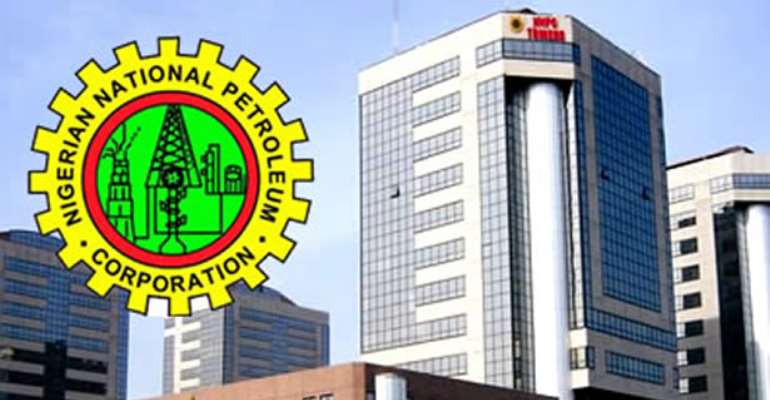World Bank Chief Tasks Buhari On Alleged Fraud At NNPC

BEVERLY HILLS, April 14, (THEWILL) – The President-Elect, Gen. Muhammadu Buhari, has been asked to do all within his power to address the alleged fraud at the Nigerian National Petroleum Corporation (NNPC) as part of his resolve to strengthen public institutions and promote good governance.
Giving the charge on Monday was the World Bank Chief Economist for Africa, Mr. Francisco Ferreira, while fielding questions on a video – conference from Washington with journalists across sub-Saharan Africa.
The occasion was the launch of Africa's Pulse, a bi-annual World Bank Group analysis of the issues shaping Africa's economic prospects.
According to Ferreira, the current emphasis of the “elected government to look at what happened in the past hopefully would have consequences for the future.”
He noted that such consequences would help institutions become stronger, while the culture of impunity is eliminated, allowing for more resources to be committed to the betterment of the poor.
Ferreira however warned against probing past administrations, saying the effort would be a major distraction for the Buhari administration.
According to the World Bank Chief, “I think it's very well spent time because institutions are built in part on norms and one norm that needs to be change is the norm of impunity. I am from Brazil myself so I am also used to a country where people could be corrupt and escape justice. And that just teach the people to keep doing it.
“I think the current emphasis of the elected government to look at what happened in the past hopefully would have consequences for the future. And those consequence for the future is that institutions would be stronger, hands would be cleaner and people have to sense that if they steal billions of dollars from NNPC: people have alleged in the past that there be been major corruption scandals there-if that stops, then that could have very high returns in terms of the money staying around and being spent on education, health, roads and power and electricity that the poor people in Nigeria and across the country need.
“I think actually that it is good investment to promote cleanliness in politics and in the management of public resources.”
Commending what he described as the political maturity in Africa when President Goodluck Jonathan conceded defeat in the recent presidential elections, he urged other African leaders to emulate him, maintaining that if rules about elections are established and followed, fears of foreign investors exiting markets would be minimised.
His words: “We've all recently seen a great example of political maturity in Africa from the handling of election results in Nigeria where President Jonathan was very quick to concede after an election that was judged mostly free with irregularities in some places but this was a substantial progress over previous elections and transition of power from an elected government to another elected government from a different party which is the norm everywhere, the norm in democracies and Nigeria can do it and hopefully other countries can do it too if we make sure that becomes the norm everywhere.
“There's no reason why foreign investors should be nervous about elections; we don't see a declining foreign investment in the United States and in the UK when they have elections because we know all the people play by the rules. So long as rulers play by the rules, and the elections are fair-and they concede elections when they lose them, elections are good things and should actually promote investment.”
He maintained that though African Governments have to provide basic services, staxation needed to be progressive as well as beneficial to the poor.
“In fact, there's probably room for African governments to tax a little bit more. But the important thing is: who they are taxing and who they are providing the services for. What we want is progressive taxation, where the tax incidence falls mostly on the rich. And as we all know, Africa has many rich people who can pay taxes.
“So if the taxes fall on the right people and if they are used not for corruption to provide good public services like the much needed infrastructure and education and health spending, then it helps to diversify the pool of resources which governments use and that's no bad thing. In fact to a number of countries, I advise them that they probably should diversify not only their economies but also sources of their fiscal revenues.
“The key thing as I say is to ensure that the people are not paying the bulk of those taxes but in fact receiving the bulk of the benefits of those spending,” he said.
Ferreira also predicted that Nigeria is likely to recover from the current fiscal crisis occasioned by the falling oil price before other oil dependent countries like Angola because of its more diversified economy.
He said the current drop in oil prices was unlikely to alter Nigeria's current economic dominance in the continent in terms of Gross Domestic Product (GDP).
